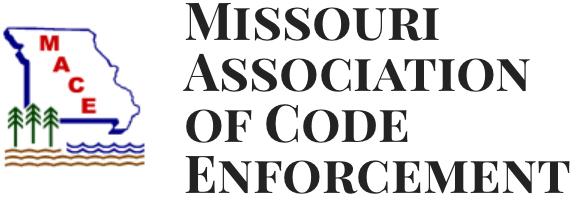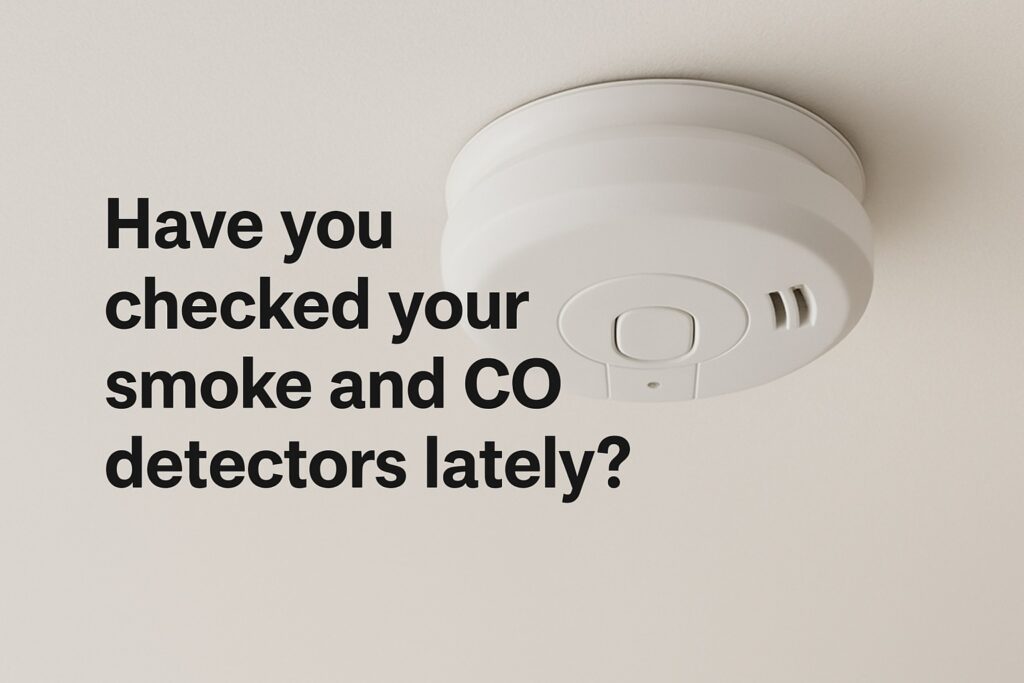Code enforcement is often seen as a challenging and sometimes thankless job. Officers work tirelessly to ensure communities are safe, compliant, and thriving, yet their efforts can go unnoticed or underappreciated. However, fostering a mindset of gratitude and thankfulness in code enforcement can transform perspectives, strengthen community relationships, and enhance the impact of this vital work. At the Missouri Association of Code Enforcement (MACE), we believe that gratitude not only improves morale but also drives meaningful change in how code enforcement is perceived and practiced.
This blog explores how gratitude and thankfulness relate to code enforcement, offering insights into building positive relationships, improving compliance, and creating safer communities. By embracing these values, code enforcement professionals, residents, and local governments can work together to achieve shared goals. Let’s dive into why gratitude matters in code enforcement and how it can shape stronger, more connected communities.
Why Gratitude Matters in Code Enforcement
Gratitude is more than just saying “thank you”—it’s a mindset that fosters positivity, collaboration, and resilience. In code enforcement, where interactions can sometimes be tense, gratitude can shift the dynamic from adversarial to cooperative. Here’s why it’s essential:
- Builds Trust: Expressing appreciation for residents’ efforts to comply with codes fosters trust and mutual respect.
- Improves Morale: Officers who feel valued are more motivated to perform their duties effectively.
- Encourages Compliance: A positive approach makes residents more likely to cooperate rather than resist enforcement actions.
- Strengthens Communities: Gratitude creates a sense of shared responsibility, encouraging everyone to contribute to a safer, cleaner environment.
By focusing on gratitude, code enforcement professionals can create a ripple effect that benefits both their work and the communities they serve.
The Role of Code Enforcement in Missouri Communities
Code enforcement officers are some of the unsung heroes of community development. Their work ensures that properties meet safety, health, and aesthetic standards, which directly impacts quality of life. At MACE, we support officers through training programs and resources to help them excel in their roles. Here’s how their efforts contribute to Missouri communities:
- Safety: Ensuring buildings meet fire, structural, and health codes prevents accidents and protects residents.
- Property Values: Well-maintained properties enhance neighborhood appeal and economic stability.
- Community Pride: Clean, compliant neighborhoods foster a sense of pride and belonging.
- Environmental Protection: Enforcing regulations on waste, stormwater, and land use preserves Missouri’s natural beauty.
These contributions often go unnoticed, but they’re the foundation of thriving communities. Expressing gratitude for officers’ work can inspire continued dedication and excellence.
How Gratitude Enhances Code Enforcement Work
Gratitude isn’t just a feel-good concept—it has practical applications in code enforcement. By incorporating thankfulness into daily practices, officers can improve outcomes and create positive experiences for everyone involved. Here’s how:
1. Building Positive Relationships with Residents
Code enforcement often involves addressing violations, which can lead to tension. However, approaching these interactions with gratitude can change the tone:
- Acknowledge Efforts: Thank residents for taking steps toward compliance, even if progress is incomplete.
- Listen Actively: Show appreciation for residents’ concerns, fostering open communication.
- Educate with Empathy: Use violations as opportunities to educate rather than punish, thanking residents for their willingness to learn.
For example, when addressing a property maintenance issue, an officer might say, “Thank you for working with us to keep your property safe. Let’s go over the next steps together.” This approach builds goodwill and encourages cooperation.
2. Boosting Officer Morale and Retention
Code enforcement can be emotionally taxing, with officers often facing resistance or criticism. Gratitude from supervisors, colleagues, and communities can make a significant difference:
- Recognition Programs: Acknowledge outstanding officers through awards or shout-outs.
- Team Support: Encourage team members to thank each other for support during challenging cases.
- Community Appreciation: Host events where residents can express gratitude for officers’ work, fostering a sense of value.
At MACE, we encourage members to join our community to access resources and support that reinforce their value. Become a member today to connect with peers who share your commitment to excellence.
3. Encouraging Community Participation
Gratitude inspires residents to take an active role in maintaining their neighborhoods. When officers show appreciation, communities feel empowered to contribute:
- Volunteer Programs: Thank residents who participate in clean-up initiatives or report violations.
- Public Awareness Campaigns: Use resources to educate communities about the importance of compliance, thanking them for their efforts.
- Positive Reinforcement: Highlight success stories of compliant neighborhoods at meetings, encouraging others to follow suit.
By fostering a culture of gratitude, officers can turn compliance into a shared goal rather than a mandate.
Practical Ways to Incorporate Gratitude in Code Enforcement
Integrating gratitude into code enforcement doesn’t require sweeping changes—it can start with small, intentional actions. Here are practical strategies for officers, communities, and local governments:
For Code Enforcement Officers
- Start with Positivity: Begin interactions by acknowledging something positive about the property or resident’s efforts.
- Attend Training: Join training programs to learn communication skills that emphasize empathy and gratitude.
- Celebrate Wins: Share success stories with colleagues to build a culture of appreciation within your team.
For Communities
- Recognize Officers: Host community events to thank code enforcement officers for their work.
- Stay Informed: Use resources to understand local codes and show appreciation by complying proactively.
For Local Governments
- Support Officers: Register officers as MACE members to access training to equip officers with skills to foster positive interactions.
- Publicize Successes: Share stories of successful code enforcement on municipal websites, thanking officers and residents.
- Create Feedback Channels: Allow residents to submit positive feedback about officers, reinforcing their value.
These actions create a cycle of gratitude that benefits everyone involved, from officers to residents to local leaders.
The Impact of Gratitude on Community Compliance
Gratitude doesn’t just improve relationships—it also drives measurable results. Studies show that positive reinforcement increases compliance rates in regulatory fields. In code enforcement, this translates to:
- Faster Resolutions: Residents who feel appreciated are more likely to address violations promptly.
- Fewer Repeat Violations: Positive interactions reduce resentment, leading to sustained compliance.
- Stronger Community Ties: Gratitude fosters a sense of shared responsibility, encouraging residents to report issues proactively.
Overcoming Challenges with a Grateful Mindset
Code enforcement isn’t without its challenges—residents may resist, budgets may be tight, and burnout is a real risk. Gratitude can help overcome these hurdles:
- Handling Resistance: Thank residents for their time, even during difficult conversations, to de-escalate tension.
- Managing Burnout: Reflect on the positive impact of your work, using MACE’s support network to stay motivated.
- Navigating Budget Constraints: Show appreciation for local government support, advocating for resources like MACE training.
By focusing on gratitude, officers can find renewed purpose and resilience, even in tough situations.
MACE’s Role in Fostering Gratitude
The Missouri Association of Code Enforcement is committed to supporting officers and communities in building a culture of gratitude. Here’s how we help:
- Training Programs: Learn communication and conflict resolution skills to foster positive interactions.
- Events and Meetings: Connect with peers to share success stories and build a supportive network.
- Resources: Access guides and tools to educate communities and promote compliance.
- Membership: Join MACE to gain access to exclusive benefits and contribute to a stronger code enforcement community.
We encourage all code enforcement professionals to become MACE members to access these resources and make a lasting impact.
How to Cultivate a Gratitude Mindset
Developing a gratitude mindset takes practice, but it’s achievable with small steps. Here are tips for officers and residents:
- Keep a Gratitude Journal: Write down three things each day that went well in your code enforcement work or community interactions.
- Practice Mindfulness: Take a moment to reflect on the positive impact of your efforts, whether it’s a safer street or a cleaner park.
- Share Positivity: Use MACE events to share stories of gratitude and inspire others.
- Stay Connected: Join MACE to connect with like-minded professionals who value gratitude.
By making gratitude a habit, you can transform your approach to code enforcement and inspire others to do the same.
Conclusion: Gratitude as a Catalyst for Change
Gratitude and thankfulness are powerful tools in code enforcement. They build trust, improve compliance, and create stronger, safer communities. By embracing these values, officers, residents, and local governments can work together to achieve shared goals. At MACE, we’re proud to support this mission through training, resources, and membership opportunities.
We invite all code enforcement professionals to join MACE and become part of a community dedicated to excellence and positivity. Together, we can make gratitude a cornerstone of code enforcement in Missouri, creating lasting change for our communities.


